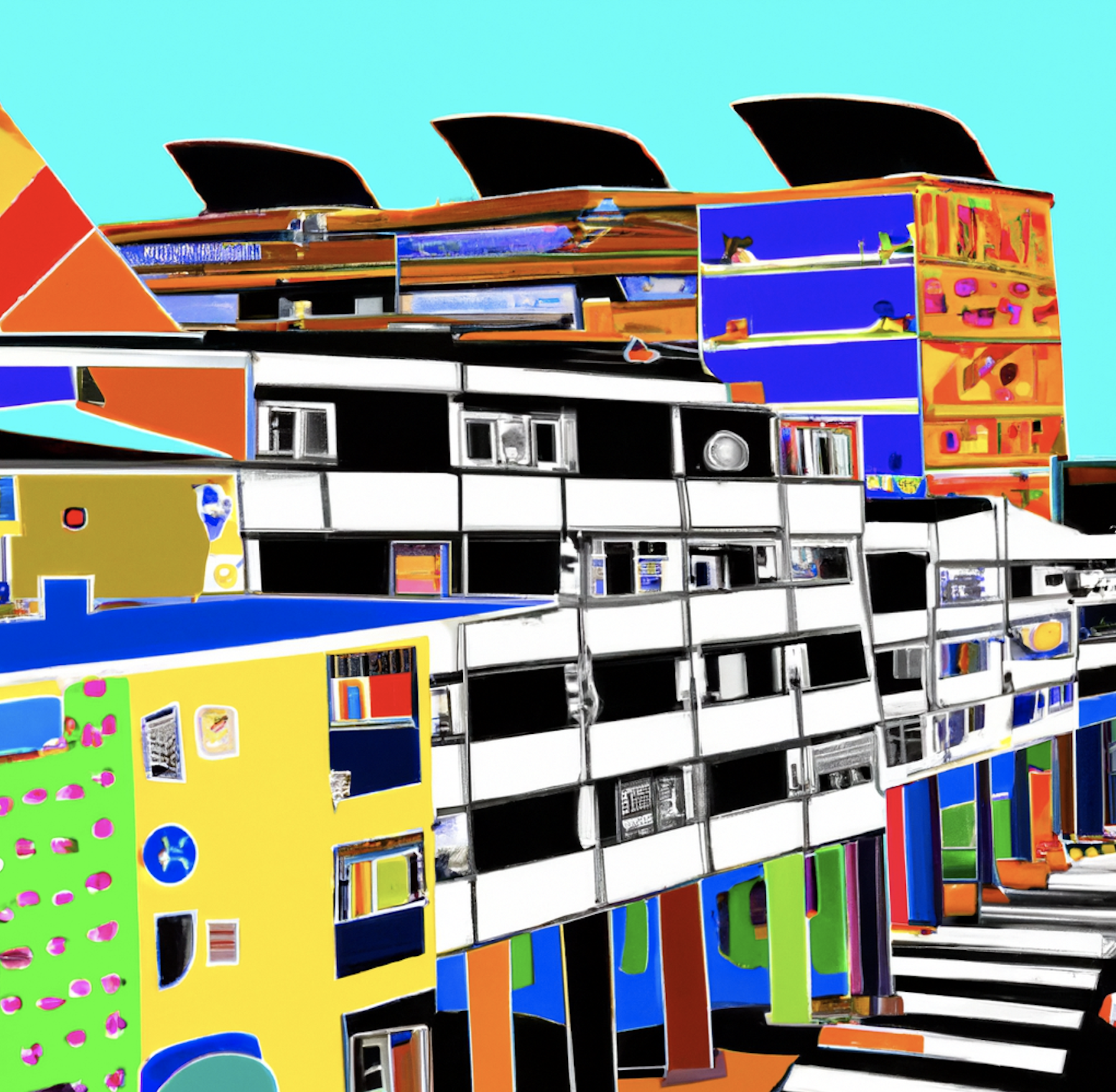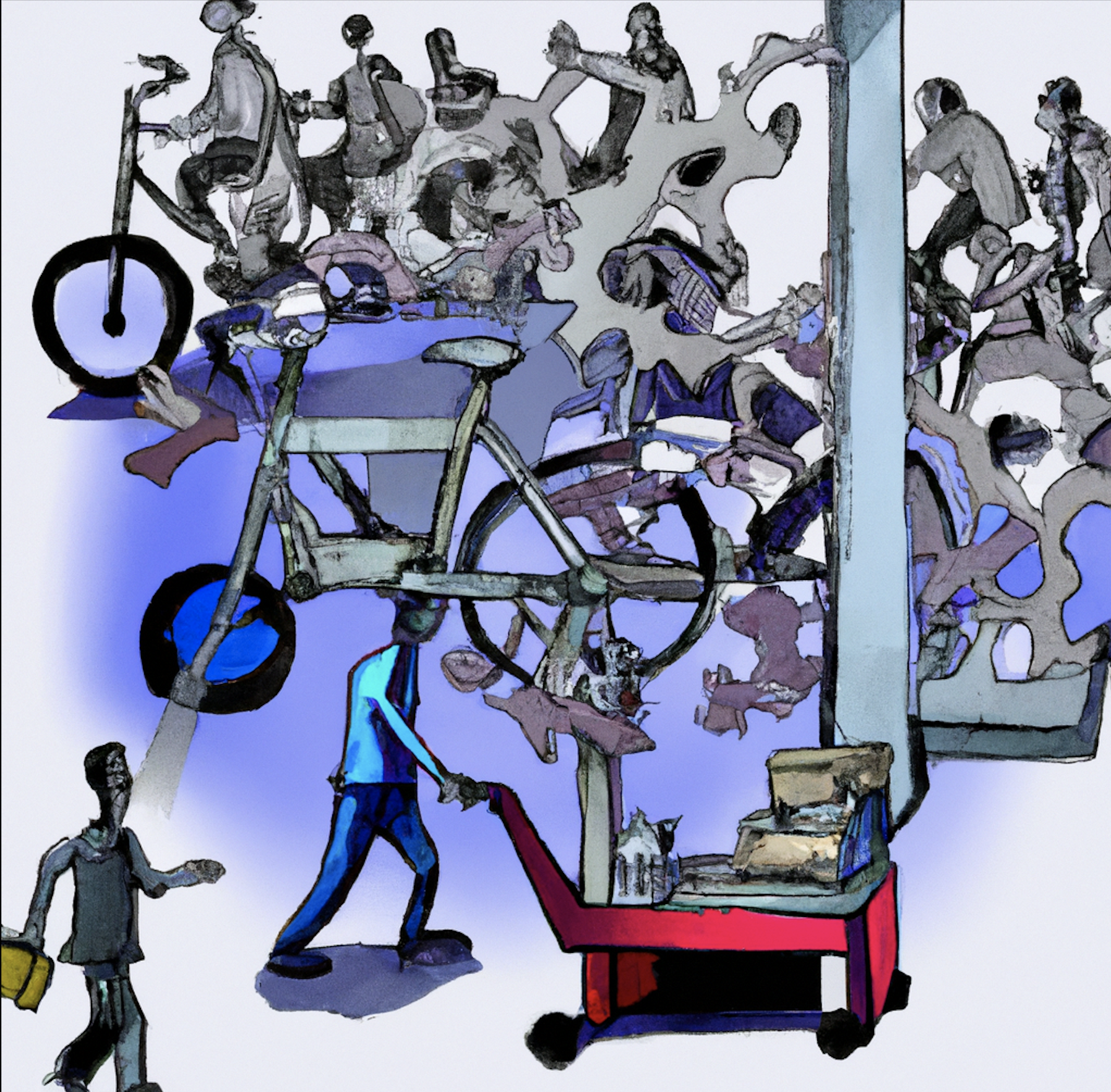Recent events in Athens have had little international coverage and yet, as colleague Antonis Vradis reports, they may indicate ‘a possible shape of things to come’. His report (24 May) illustrates the developing nature of ‘the Greek crisis’. After commenting on the recent riots, Antonis introduces, as the new editor of our occasional series Alternatives, an extract from a forthcoming analysis (issue 15.3-4) by Hara Kouki and Regina Mantanika on one aspect of that crisis, the challenging action by a group of migrants and the possibilities it has begun to open up. It has, in Antonis’ words, “forced us to rethink the distinctions between private and public, between local and foreign, between a struggle for life and for death.”
Updated 9 June 2011:
In late June 2011, Athens was shaken by the violent police repression of a 48-hour general strike protest, called against the new austerity measures voted by the Greek parliament as part of its renewed IMF/EU/ECB agreement. Apart from the violence however, the protests were also marked by an emergent public space occupation movement: the city’s main square, Syntagma, had been taken over by protestors weeks in advance. The occupation was undertaken by thousands of stunningly diverse people, many of which had never taken to the streets before. Yet this was not the first time in this year that Athens saw the emergence of new political subjects in its public realm: months earlier, the successful hunger strike of three-hundred undocumented migrants acted as a prelude of things to come. In their article, Hara Kouki and Regina Mantanika lay out the spatiality of this major struggle in Greece under the IMF.
Updates on social struggles and the overall situation in the country can be found at http://www.occupiedlondon.org/blog/
The events of recent days in Athens seem to have had surprisingly little international media coverage, yet for me they are crucial and indicative of a possible shape of things to come. On May 10, a 44-year-old Greek man was stabbed to death in a street robbery (he was most likely killed by two Afghan and one Pakistani robber in a parking lot while trying to fetch his camera to record the birth of his daughter). This kick-started a four-day long series of far-right demonstrations and rioting, with small groups rampaging through the migrant neighbourhoods of central Athens — there was a confirmed fatal stabbing of at least one migrant (a 21-year old Bangladeshi worker) and we suspect there might have been quite some more. These thugs also smashed migrant-run shops and repeatedly tried to attack the two anarchist occupations in the area, which we were defending.
Added to this was the near-fatal injury of a demonstrator (friend of Hara’s and Regina’s) beaten by police at the May 11th general strike demonstration and finally, another near-fatal injury of a street vendor just down the street from our house in Exarcheia: some youths tried to retaliate for what they saw as joint police-fascist operations of the past days, attacked the local police station and set fire to a police motorcycle that chased after them; this exploded, seriously injuring three street vendors of which one remains in intensive care.
The spatiality of a social struggle in Greece at the time of the IMF: Reflections on the 2011 mass migrant hunger strike in Athens
Preface (by Antonis Vradis)
The €110 billion bail-out offered to the Greek government in May 2010 by the so-called troika (comprising of the International Monetary Fund, the European Central Bank and the European Union) was not only the largest of its kind in western history to date, it also marked the entrance of Greek society into a period of extreme turmoil, with profound changes in the standard of living and the everyday reality of large segments of the population. The country’s extensive public sector saw wage reductions, pension decreases and tax rises. In the private sector mass lay-offs and redundancies became widespread, as did wage reductions and renegotiations of labour contracts.
Against this turbulent backdrop an extraordinary event would soon take place in the cities of Athens and Thessaloniki. In early 2011, the beginning of the largest mass hunger strike on European soil saw three hundred undocumented migrants, mostly of Maghrebi origin, demand the legalisation of all undocumented migrants in the country.
Hara Kouki and Regina Mantanika, Athens-based researchers and activists, trace the chronology of the strike in the city by looking at the series of different spaces –both public and private– that took turns in hosting it: the Law Faculty of the University of Athens, in which the migrants were quickly made unwelcome; the private mansion in which they found shelter and finally, the public hospitals to which many of them were transferred and in which they ended their strike. Kouki and Mantanika offer us the preliminary findings of their research on these spaces’ dynamics, the way in which they interacted with the strike and how the strike itself transformed some of these spaces in return.
I can hardly think of a more appropriate topic and article with which to launch my term as editor of the Alternatives section of CITY, a section set to engage and discuss “with groups and individuals who are developing alternative urban visions and practices”. Here we have an extraordinary such example: the practice of a small number of people who nevertheless forced us to rethink the distinctions between private and public, between local and foreign, between a struggle for life and for death. In a historical conjuncture where alternatives are desperately sought but seldom found, where the public retreats in the face of the private, tracing the spatiality of this newly-encountered social struggle is a much needed and rewarding exercise.
An extract from the article by Hara Kouki and Regina Mantanika
In May 2010, the Greek state entered a €110 billion bailout agreement with the International Monetary Fund (IMF), the European Union (EU) and the European Central Bank (ECB). The austerity measures taken in the wake of the bailout have been followed by sharply increasing unemployment figures, a significant deterioration of average living conditions for many, and a significant shift in the country’s political landscape: the extreme-right party of Chrysi Augi (Golden Dawn) was elected for the first time at local authority level, in Athens. In March 2011, the freshly named Ministry of Citizen Protection (previously known as the Ministry of Public Order, administering the state’s policing and intelligence services) announced plans for the construction of a protective wall along Greece’s land border with Turkey. The aim of its construction, as announced, was to deter the rising number of undocumented migrants from crossing the border and inundating the country’s urban centres and the capital, Athens, in particular.

Within this context a group of 300 migrants, permanently settled in the island of Crete where they worked undocumented and therefore without any labour rights, took the extraordinary decision to commence a mass hunger strike to demand the legalization of all undocumented migrants living in Greece. This social struggle was unique in achieving a massive migrant participation and in articulating a maximalist demand (some could say impractical or utopian) that challenged the inefficiency of the migration policies of the Greek state, opening up the agenda to issues that had not previously been debated often in public.






